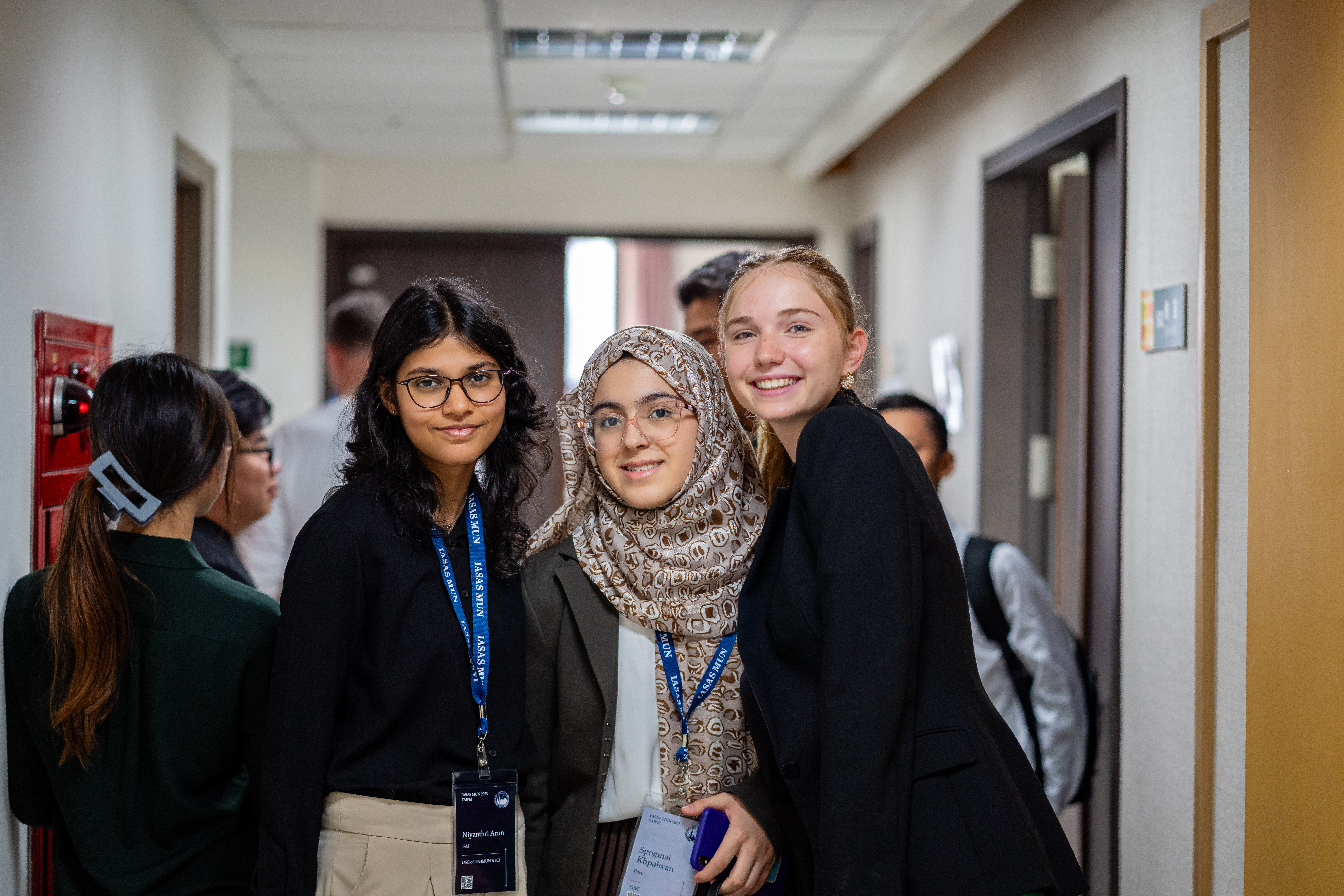DRESS CODE
All delegates at IASAS MUN must adhere to the dress code. As a
general rule, delegates must be dressed in Western business attire.
Students are expected to exhibit an appearance in dress and behavior
that is above reproach during the conference. Should any student
have a specific question, please ask the Secretariat or any of the
IASAS MUN Conference Directors. In general, conference attire should
be business attire with a blazer. Some examples include:
- Full business suit including jacket. Suit color choices should be appropriate for a professional environment.
- Business pants or skirt with a blouse or a solid-color button-up shirt, and a blazer.
- Business dress with a blazer.
- Neckties are the norm in this activity for students who choose to wear what is traditionally seen as male-presenting attire.

GENERAL BEHAVIOR
All delegates and officers must follow the IASAS Code of Conduct
linked
here. As this is an MUN conference, there will be certain expectations
in place to help maximize everyone’s productivity and enjoyment.
- The primary language of the conference shall be English. All communications during the conference or related to it must be in English.
- Decorum will be maintained throughout the conference. All delegates, officers, advisors, admins, and participants must act diplomatically and courteously towards one another.
- Delegates will abstain from using personal pronouns for the duration of the conference, except for addressing the committee as a whole (e.g. “we, the GA…”). Chairs may refer to themselves as “the chair” or “the dais”
- Delegates who are being disruptive to the conference or other delegates may, at the discretion of the chair, be issued a formal warning. After a delegate receives three formal warnings, they will be expelled; this means they are unable to vote, speak, or raise points for the duration of the conference.
- In relation to inquiries about the Flow of Debate, Rules of Procedure, or any matters concerning the Committee, both the President/Head Chair and/or Deputy President/Head Chair’s say is final in the matter. For matters that may be considered unrelated to the Committee, refer to Rule 6 of the General Rules and Regulations
- Delegates who feel that they are being personally targeted or experiencing any form of discrimination/bullying, are recommended to report this clearly to their Chair who, based on their judgment, mediate it personally or include any member of the Secretariat depending on severity. If delegates have some objections to the chairs, this must be reported directly to the Secretary-General.

